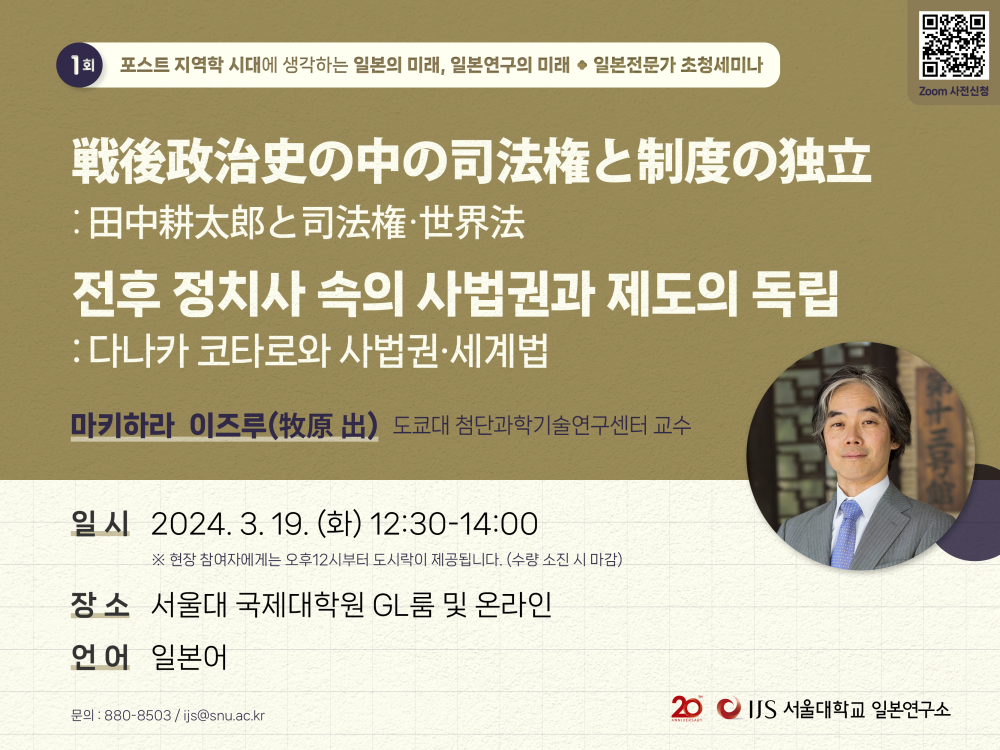
Thirty years have passed since the end of the Cold War and globalization, and the "region" is in the midst of a drastic change in redistricting. Accordingly, the knowledge system that looks at the "region," that is, the content and method of "regional research," is being newly constructed across boundaries.The era of "post-regional research" is now opening. Meanwhile, Seoul National University's Institute for Japanese Studies, which celebrated its 20th anniversary, invited experts from the front lines of each field to prepare eight lecture series to explore the future of Japan and the future of Japanese research.
For the first time, we will invite Professor Makihara of the Tokyo University to give a lecture as follows, so we look forward to the participation of interested people.
Date:2024.3.19 (Tues) 12:30-14:00
Venue:SNU GSIS (Bldg 140 ) & Zoom
*This seminar will be held by hybrid (offline/online)。
*Anyone can participate offline without a reservation.Lunch will be served from 12 p.m. (The number is limited, so we will close as soon as we run out.)
*If you wish to participate online, please make a reservation in advance at the link below
https://forms.gle/TdsoB9xZxvmRq8Lv9
Lecturer:Makihara Izuru (Professor, Political Administrative System of the Center for Advanced Science and Technology, Tokyo University)
Title:Independence of Judicial Power and System in Postwar Political History: Tanaka Kotaro,Judicial Power and World Law
Language:Japanese
Summary:It will soon be 80 years since the end of World War II.What conditions are necessary to discuss this long postwar Japanese politics from a historical perspective? From this perspective, I would like to consider judicial power and judicial politics, which are the pillars of a solid system.The independence of judicial power guaranteed by the Constitution under the Japanese Constitution has been questioned as an institutional principle along with local government.The problems are almost there in the early days.Therefore, as a person who established judicial power as a system, I focus on Tanaka Kotaro , who served as Chief Justice of the Supreme Court for 10 years in the early days of his establishment. Tanaka, a professor and devout Catholic at Tokyo Imperial University who wrote "Theory of World Law," became the first judge of the International Court of Justice after the retirement of the Chief Justice of the House of Councillors.He is the only person who has served as head of legislative, administrative and judicial affairs. Tanaka, who was close to Yoshida Shigeru and Sato Eisaku and had a potential conflict with Kishi Shinsuke over constitutional revision, provided an interpretive basis through the decision of the Sunagawa case when Shinzo Abe revised the Basic Act on Education. With his difficult life path at the center, I hope to understand postwar political history.
Inquiry:SNU-IJS (880-8503 / ijs@snu.ac.kr)